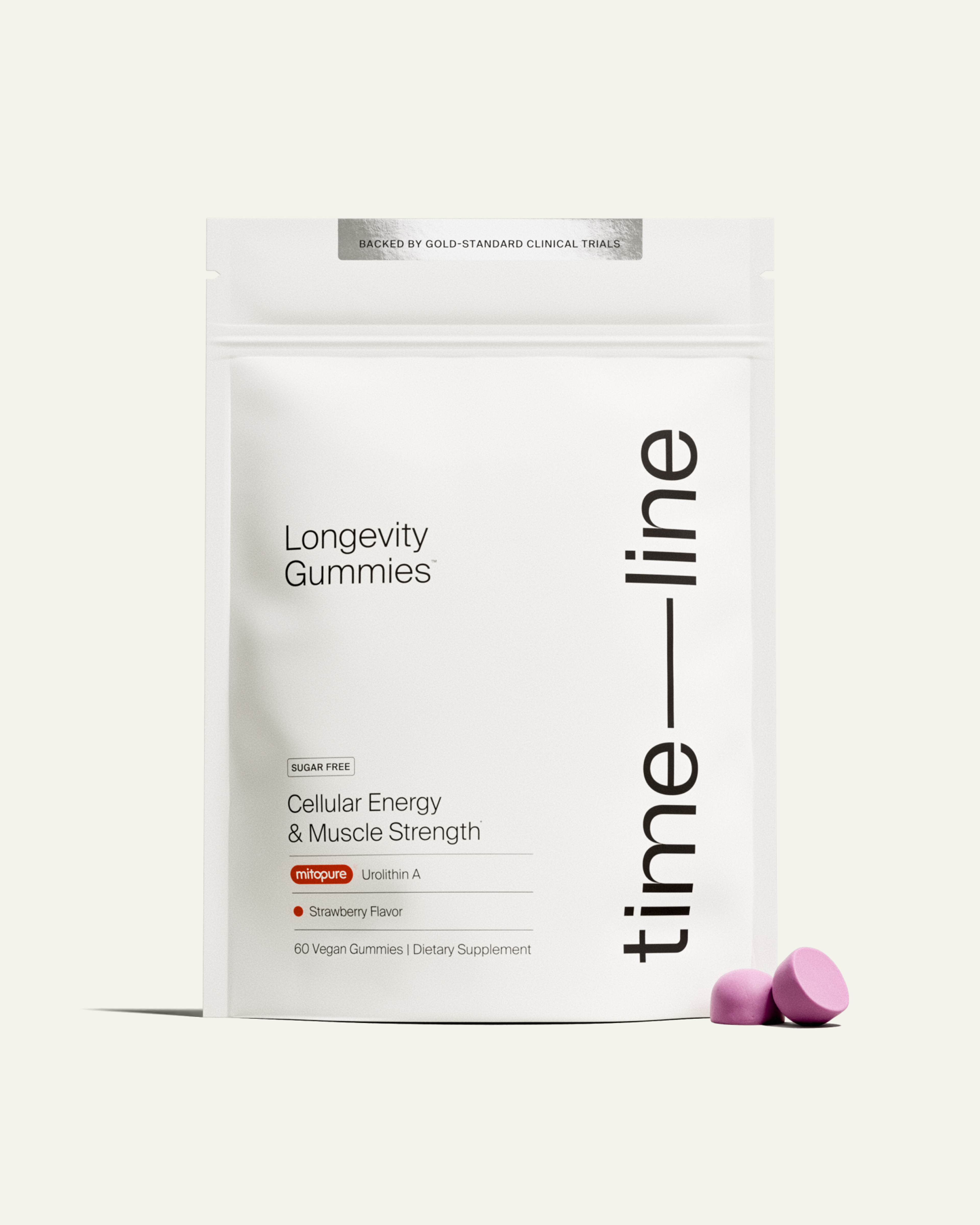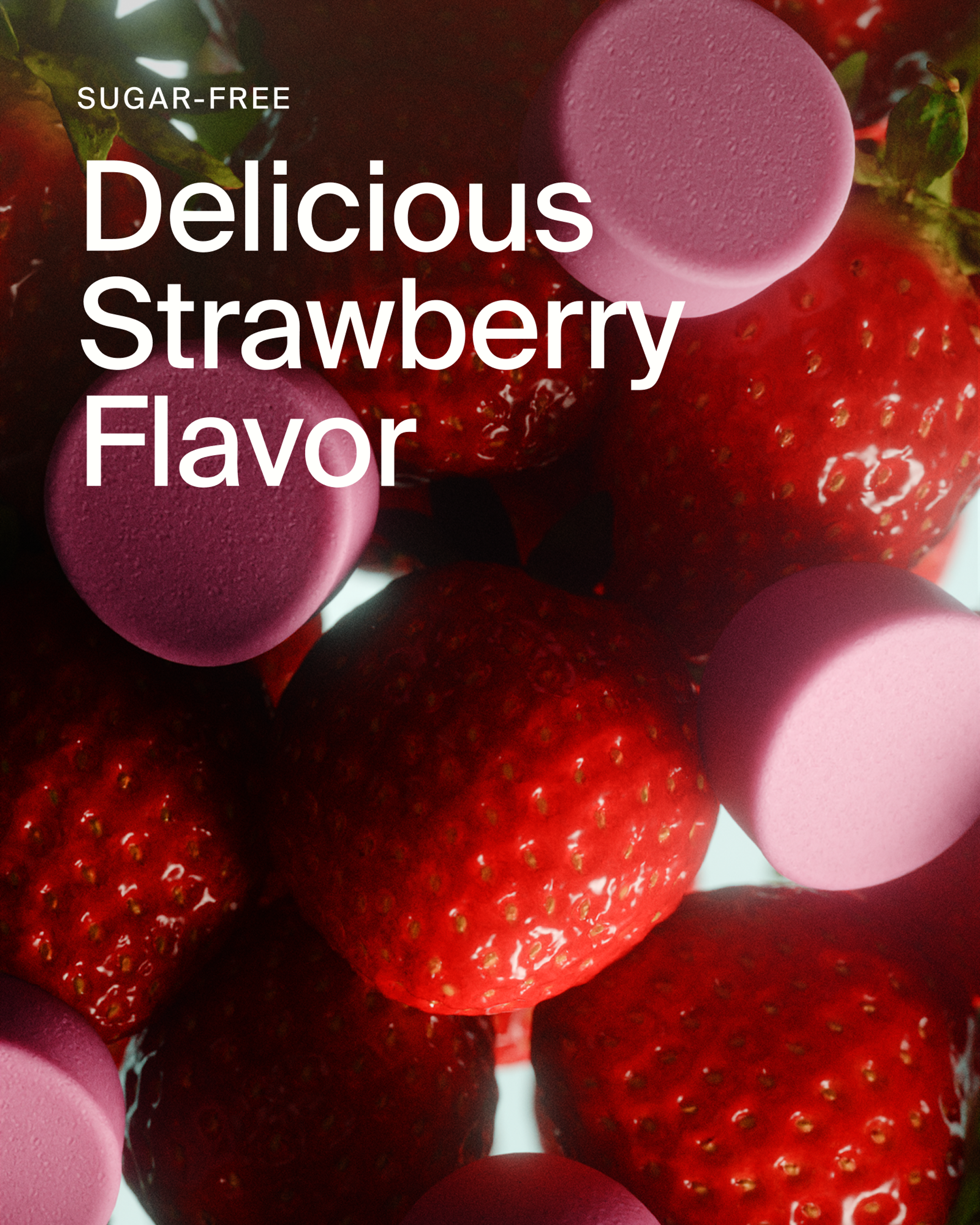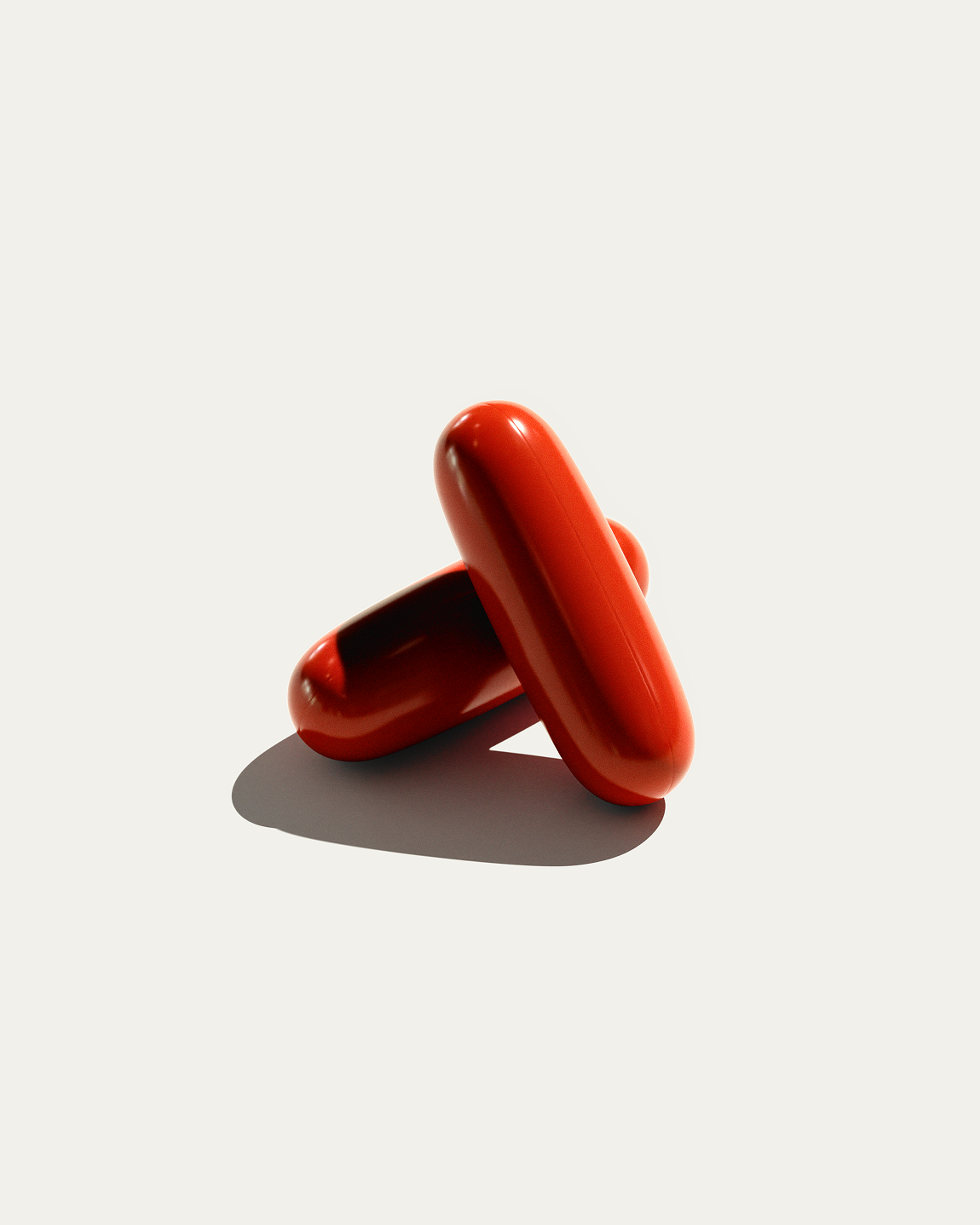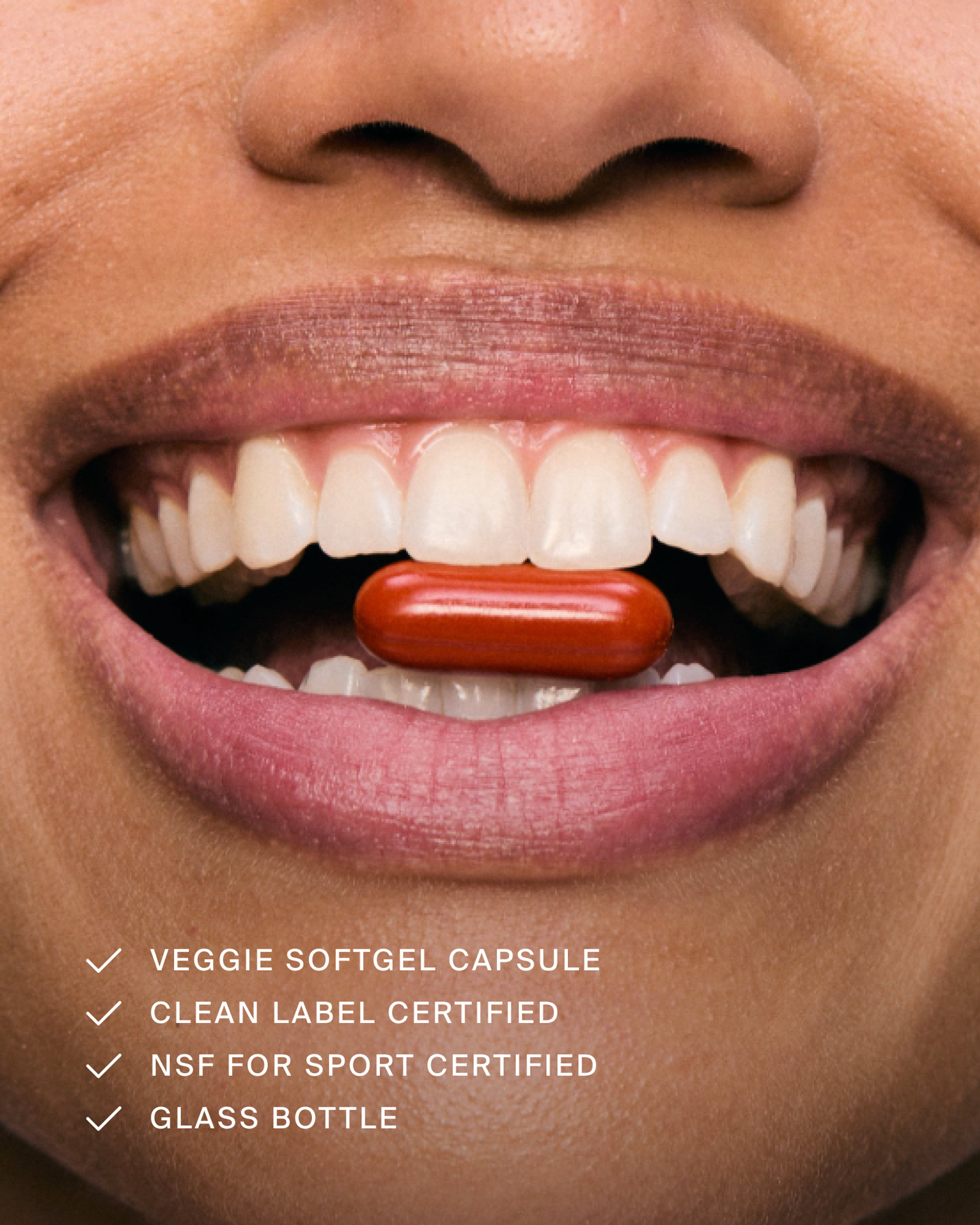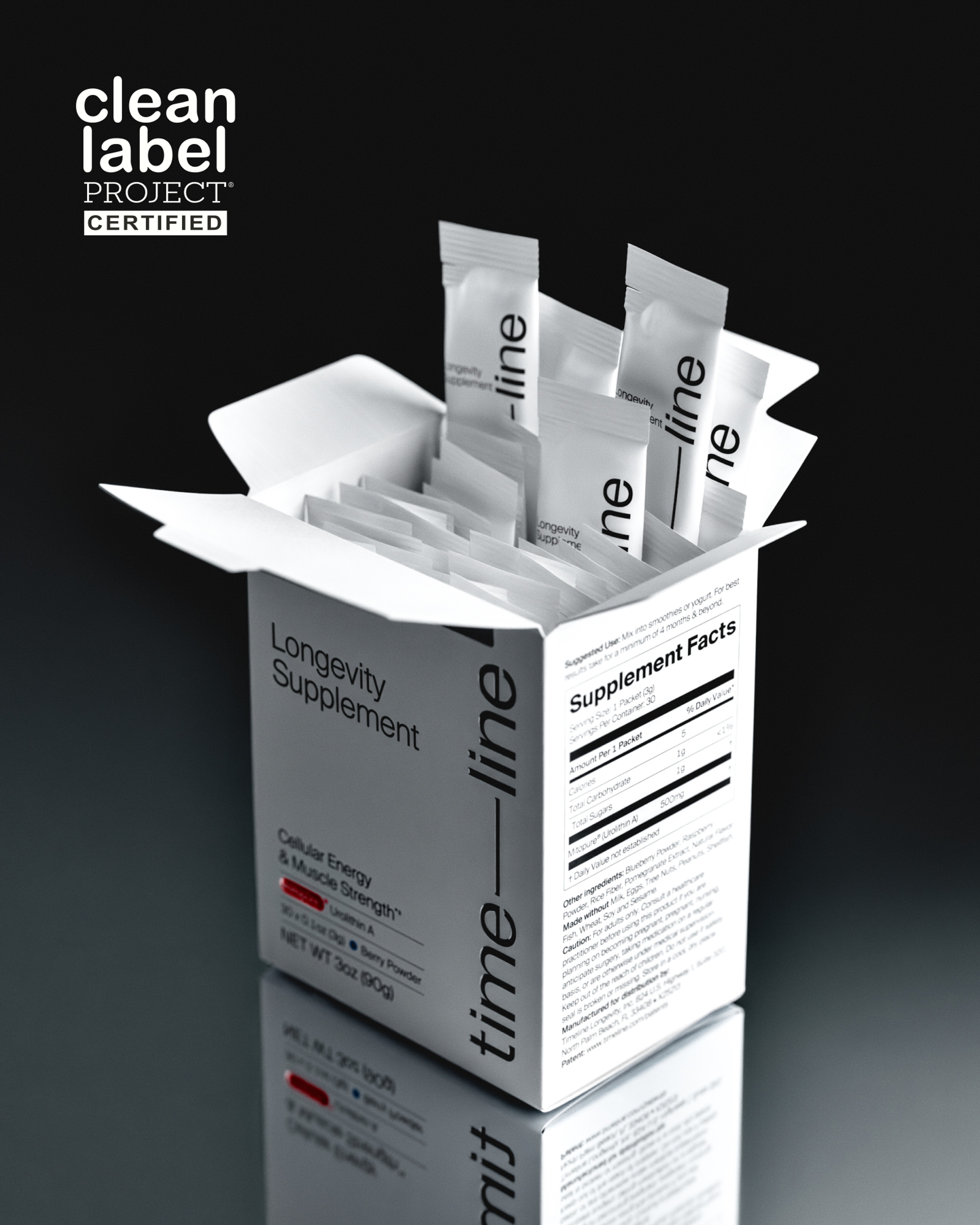What is the best source of Urolithin A?
Urolithin A is found as a precursor in some foods, but supplementing may provide a more precise dose of the postbiotic nutrient.
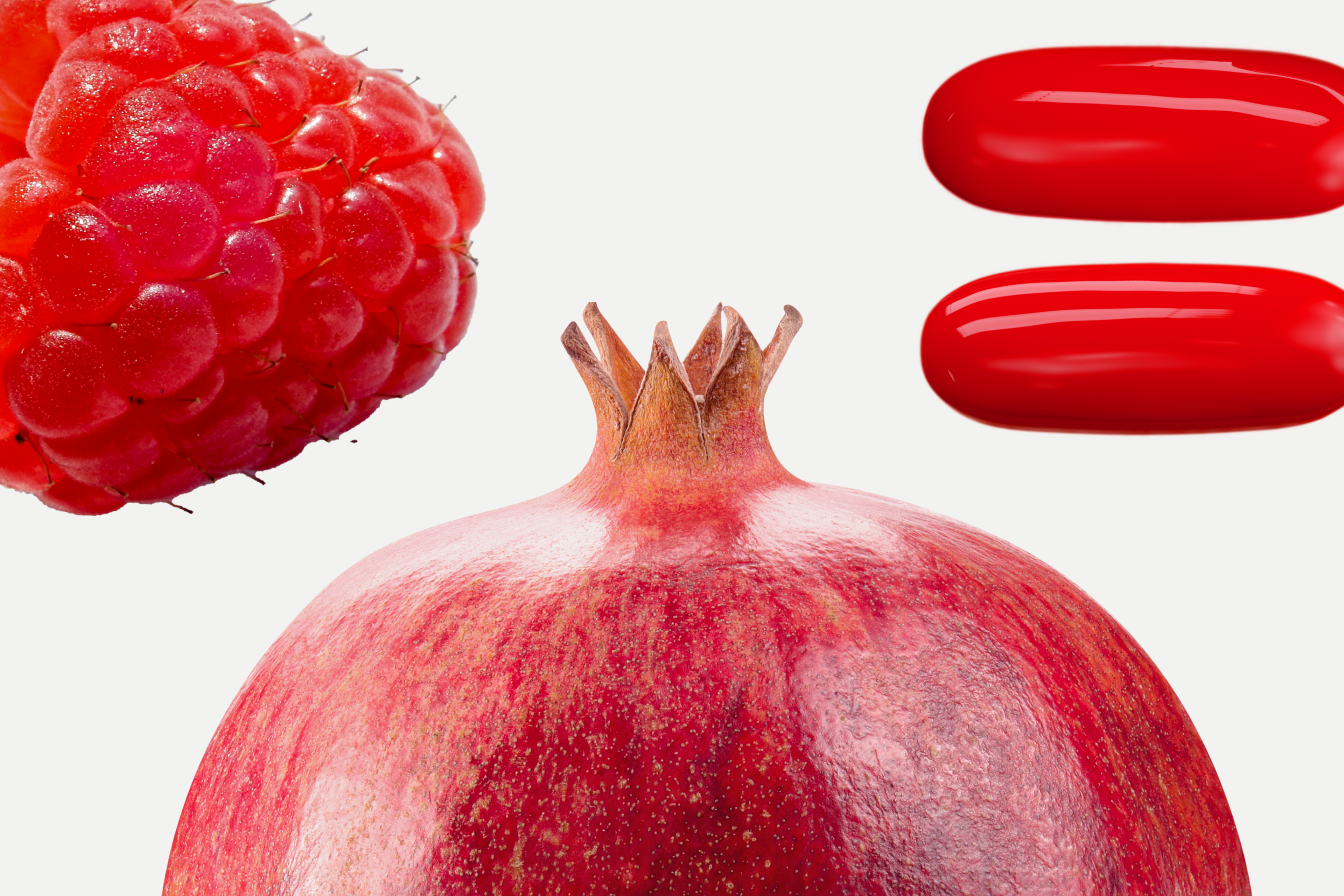
What to know
Urolithin A activates mitophagy, the essential process for clearing and renewing mitochondria, which is crucial for maintaining cellular health with age.
Urolithin A is a postbiotic, so we need a healthy gut microbiome to make it.
Pomegranates, berries, and nuts are the best sources of the dietary precursors needed for the gut to make Urolithin A.
Most people don't have the right gut microbiome to make Urolithin A. A supplement like Mitopure® is the best way to ensure you are getting enough Urolithin A.
If you’re on the lookout for science-backed ways to live healthier for longer, chances are Urolithin A has caught your attention. This naturally occurring compound is gaining well-deserved recognition for its powerful effects on cellular energy, muscle health, and skin health. Read on to learn what Urolithin A is and what are the best sources of it.
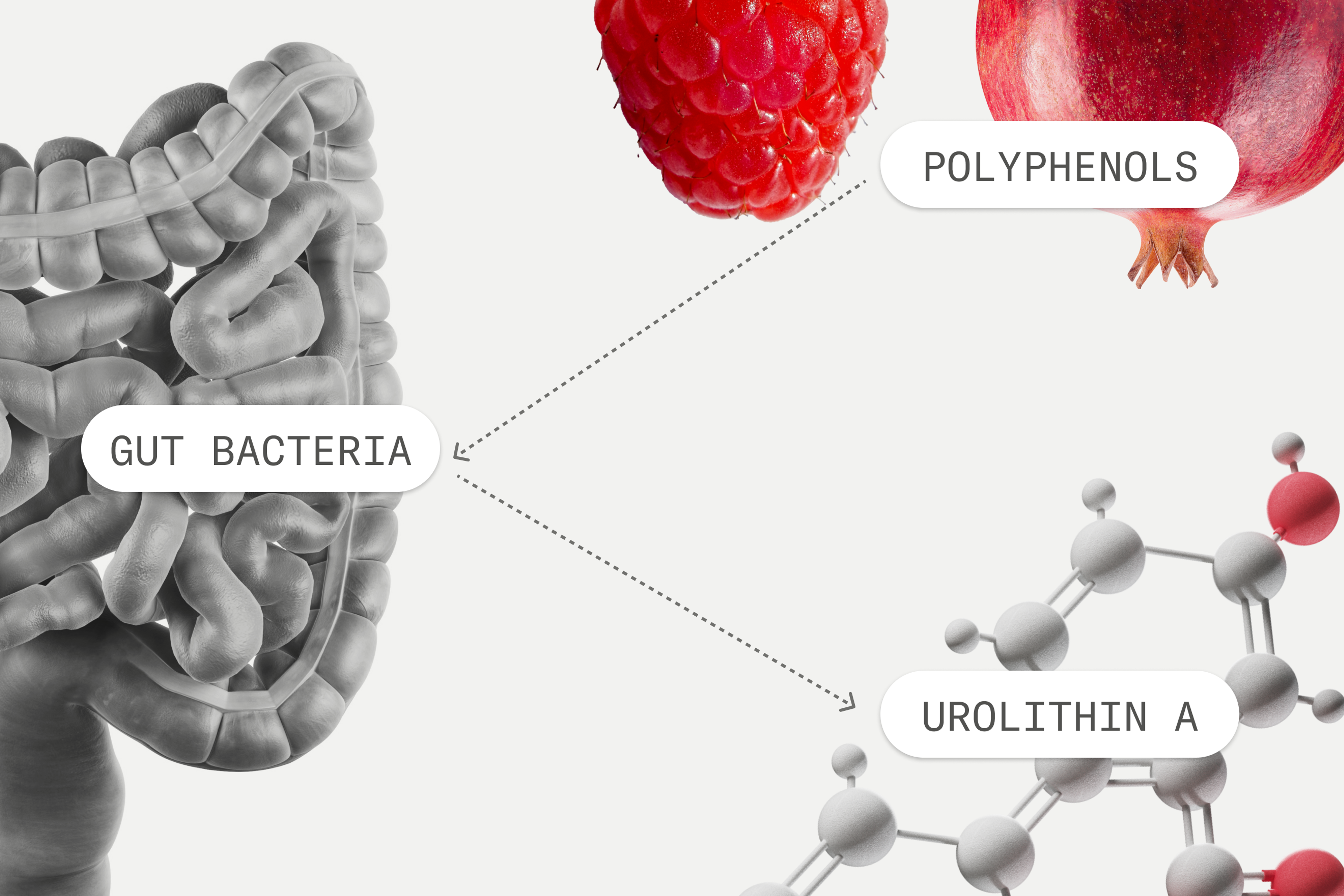
Urolithin A is a postbiotic. Our gut bacteria create it from some polyphenols.
What does Urolithin A do in the body?
Urolithin A works by activating mitophagy, a cellular process essential for clearing out and renewing tired, worn-out mitochondria. Mitophagy is crucial for maintaining cellular health and mitochondrial function and, therefore, for energy production, especially as we age[1]. Research has shown that the process of mitophagy is vital for the health of our muscles, heart, brain, and immune systems, and a decline in mitophagy is one of the hallmarks of aging.
Now that we know what Urolithin A does, you’re probably wondering where you can get more of it?
While it’s true certain foods contain Urolithin A precursors, relying solely on your diet for the compound may not provide sufficient amounts[2]. So, what is the best source of Urolithin A, and how can you seamlessly integrate it into your daily routine? Let’s discuss.
What is the best source of Urolithin A?
Urolithin A, classified as a postbiotic, isn't directly present in the foods we consume. Rather, your gut microbiome converts certain superfoods, including pomegranates, raspberries, strawberries, almonds, and walnuts, into Urolithin A.
In postbiotics, bacteria in the gut convert potent plant compounds, known as polyphenols, into valuable nutrients for the body to use. In the case of Urolithin A, a regular intake of fruits and nuts rich in specific polyphenols like ellagitannins (ET) and ellagic acid (EA) provides your body with the necessary building blocks for Urolithin A conversion.[3]
Most of us don't even have the right gut microbiome to make Urolithin A. In fact, a study found that after consuming pomegranate juice, a rich source of Urolithin A precursors, only 40% of participants had converted a significant amount of these polyphenols into detectable levels of Urolithin A. [4]In simple terms, not everyone metabolizes polyphenols in the same way, and some people are more efficient at converting them into Urolithin A than others.
Due to the limitations in the gut, the best source of Urolithin A is through a supplement like Mitopure®.
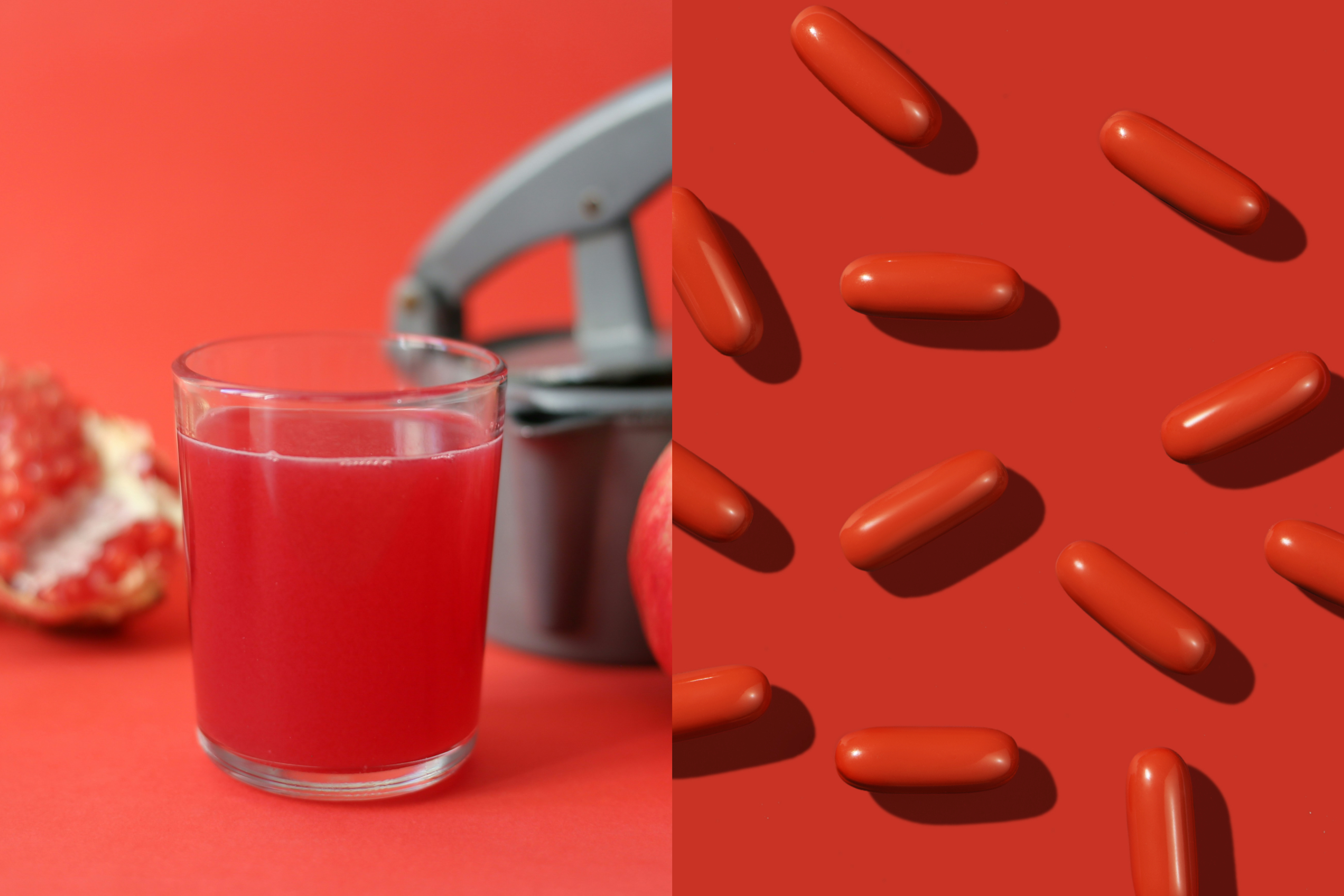
Is Urolithin A the same as pomegranate extract?
Pomegranates in extract and juice forms are high in the polyphenols ellagitannins and ellagic acid, but they do not directly contain Urolithin A. The body converts ellagitannins and ellagic acid into Urolithin A through metabolism in the gut, making the superfood rank high on the list of Urolithin A precursors.
Yet, there’s evidence to suggest that the exact polyphenol content in extracts and juices can vary due to factors like source and preparation methods.[5] While consuming the extract may prove beneficial to your health, pinpointing the precise amount of potent polyphenols from one extract or juice to another might be tricky.
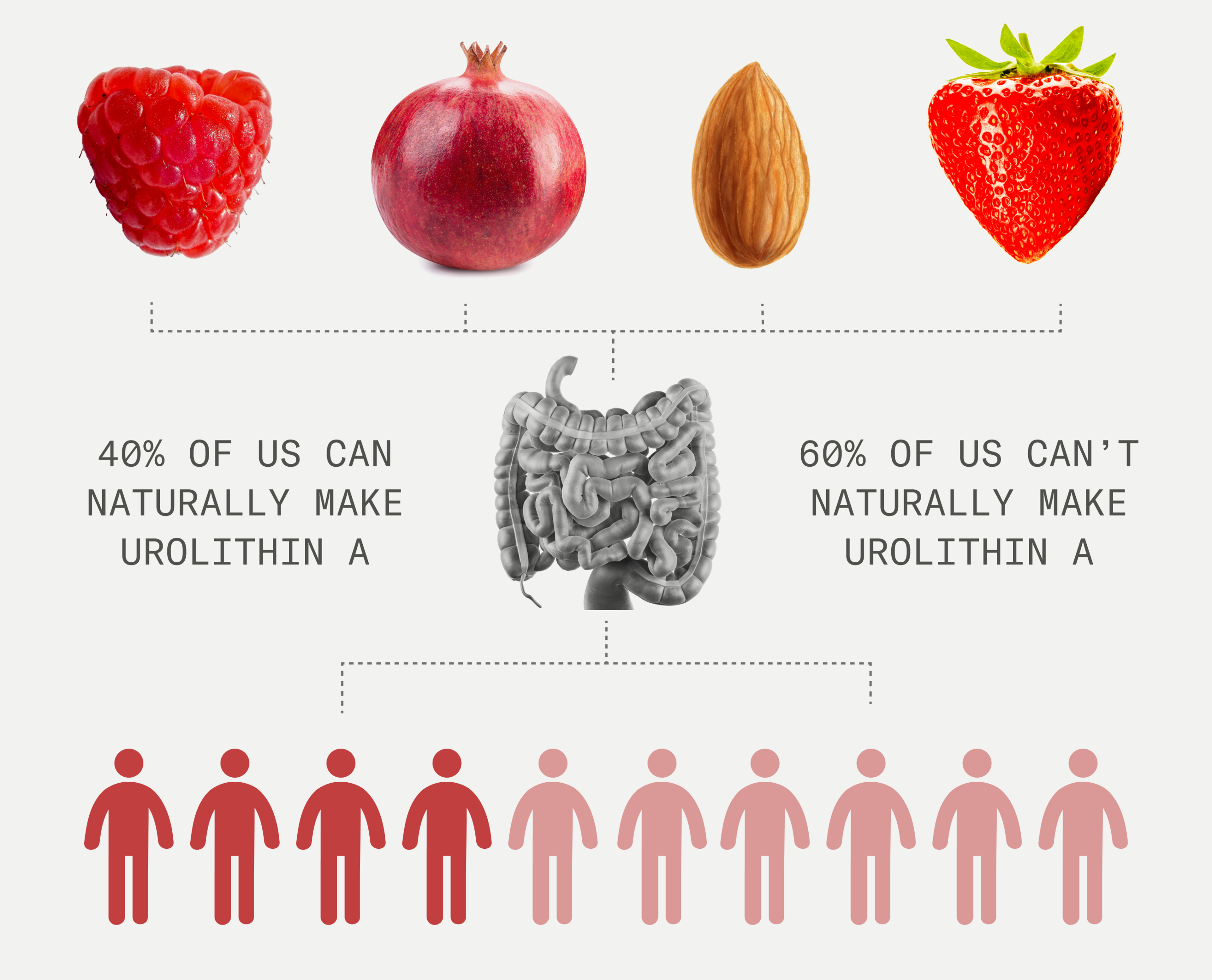
What’s the best way to increase Urolithin A?
Consuming a polyphenol-rich diet can greatly benefit your health, but it may not guarantee the optimal intake of Urolithin A. Here's why: The ability of your gut microbiota to convert polyphenols, such as ellagitannins and ellagic acid, into Urolithin A is influenced by your individual gut microbiota, which can vary from person to person.[6]
This is where supplementation can come into play, providing a means to ensure a more precise delivery of Urolithin A than dietary sources alone. Direct supplementation with Mitopure® provides six times the amount of Urolithin A compared to diet alone. Even if you are one of the few people with a gut microbiome able to produce Urolithin A, you’d have to drink the equivalent of 6 cups of pomegranate juice every day to get the same amount of Urolithin A in 500 mgs of Mitopure.
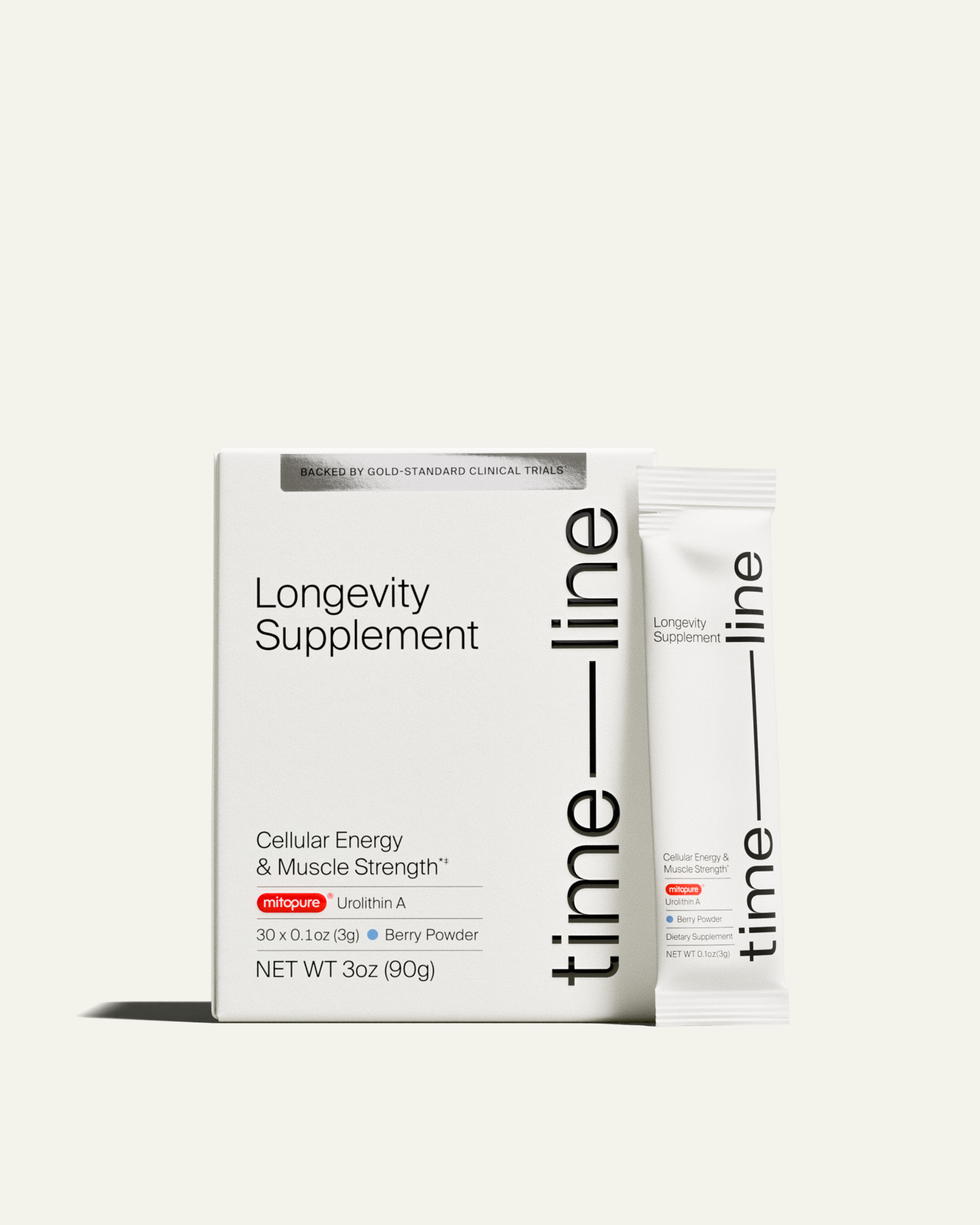
Mitopure Powder
4.5 · 1042 reviews
A tasty addition to your health routine
Wrapping up
Urolithin A superfoods can be a great addition to your healthy aging routine, but counting on them alone to provide the full potential benefits of Urolithin A might not be enough. If your aim is to boost your Urolithin A levels and your cellular health in the process, the good news is that Mitopure is proven to provide a precise dose and optimal intake of Urolithin A.
Authors

Written by
Editorial Staff

Reviewed by
Director Science Communications
References
- ↑
D’Amico D, Andreux, PA, et al. Impact of the Natural Compound Urolithin A on Health, Disease, and Aging. Trends in Molecular Medicine. 2021;27(7):687-699. doi: https://doi.org/10.1016/j.molmed.2021.04.009 (https://doi.org/10.1016/j.molmed.2021.04.009)
- ↑
Singh, A., D’Amico, D., Andreux, P.A. et al. Direct supplementation with Urolithin A overcomes limitations of dietary exposure and gut microbiome variability in healthy adults to achieve consistent levels across the population. Eur J Clin Nutr 76, 297–308 (2022). https://doi.org/10.1038/s41430-021-00950-1 (https://doi.org/10.1038/s41430-021-00950-1)
- ↑
D’Amico D, Andreux, PA, et al. Impact of the Natural Compound Urolithin A on Health, Disease, and Aging. Trends in Molecular Medicine. 2021;27(7):687-699. doi: https://doi.org/10.1016/j.molmed.2021.04.009 (https://doi.org/10.1016/j.molmed.2021.04.009)
- ↑
Singh, A., D’Amico, D., Andreux, P.A. et al. Direct supplementation with Urolithin A overcomes limitations of dietary exposure and gut microbiome variability in healthy adults to achieve consistent levels across the population. Eur J Clin Nutr 76, 297–308 (2022). https://doi.org/10.1038/s41430-021-00950-1 (https://doi.org/10.1038/s41430-021-00950-1)
- ↑
Li Z, Summanen PH, Komoriya T, Henning SM, Lee RP, Carlson E, Heber D, Finegold SM. Pomegranate ellagitannins stimulate growth of gut bacteria in vitro: Implications for prebiotic and metabolic effects. Anaerobe. 2015 Aug 1;34:164-8.
- ↑
Singh, A., D’Amico, D., Andreux, P.A. et al. Direct supplementation with Urolithin A overcomes limitations of dietary exposure and gut microbiome variability in healthy adults to achieve consistent levels across the population. Eur J Clin Nutr 76, 297–308 (2022). https://doi.org/10.1038/s41430-021-00950-1 (https://doi.org/10.1038/s41430-021-00950-1)
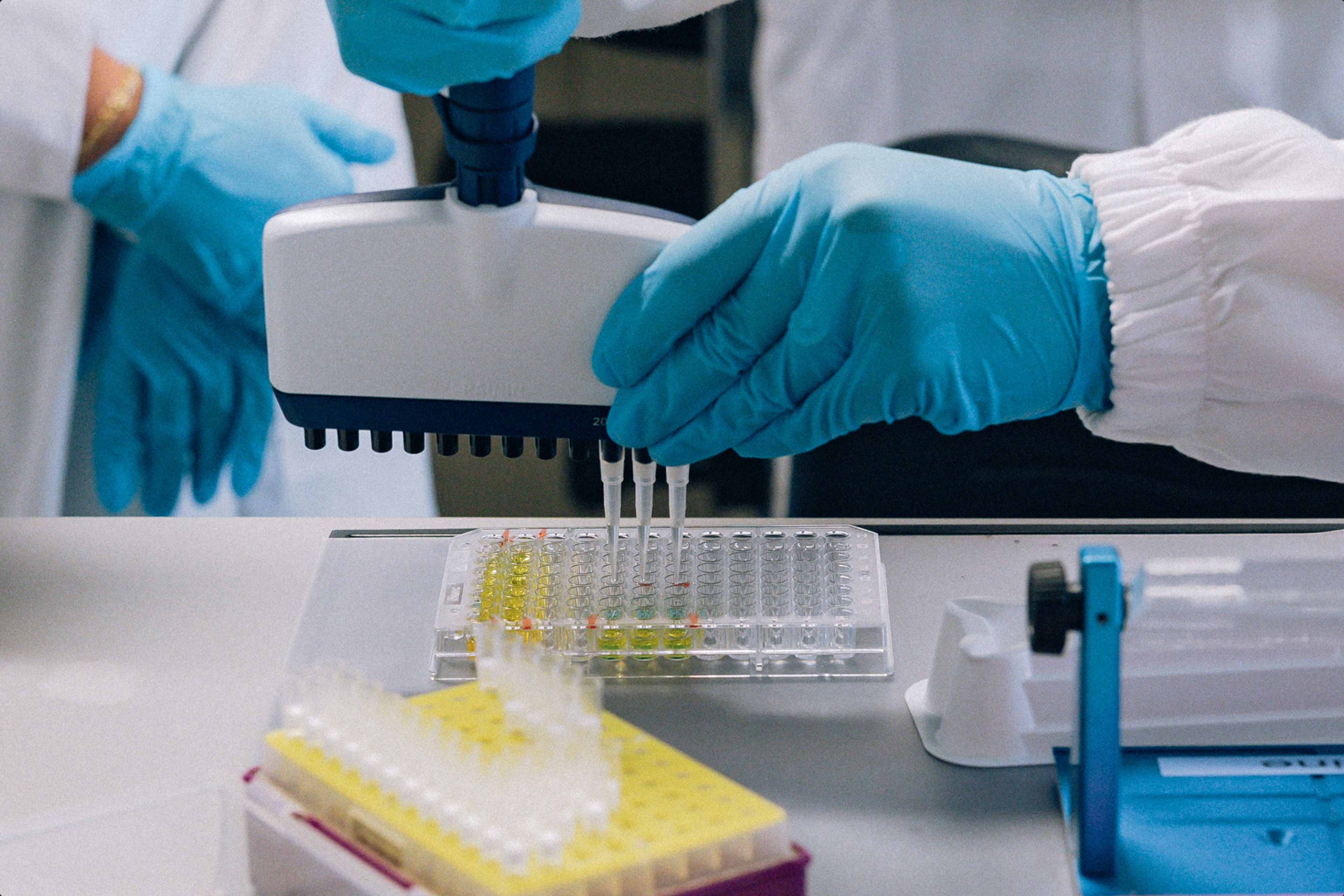
·
Nutrition·
Studies·
